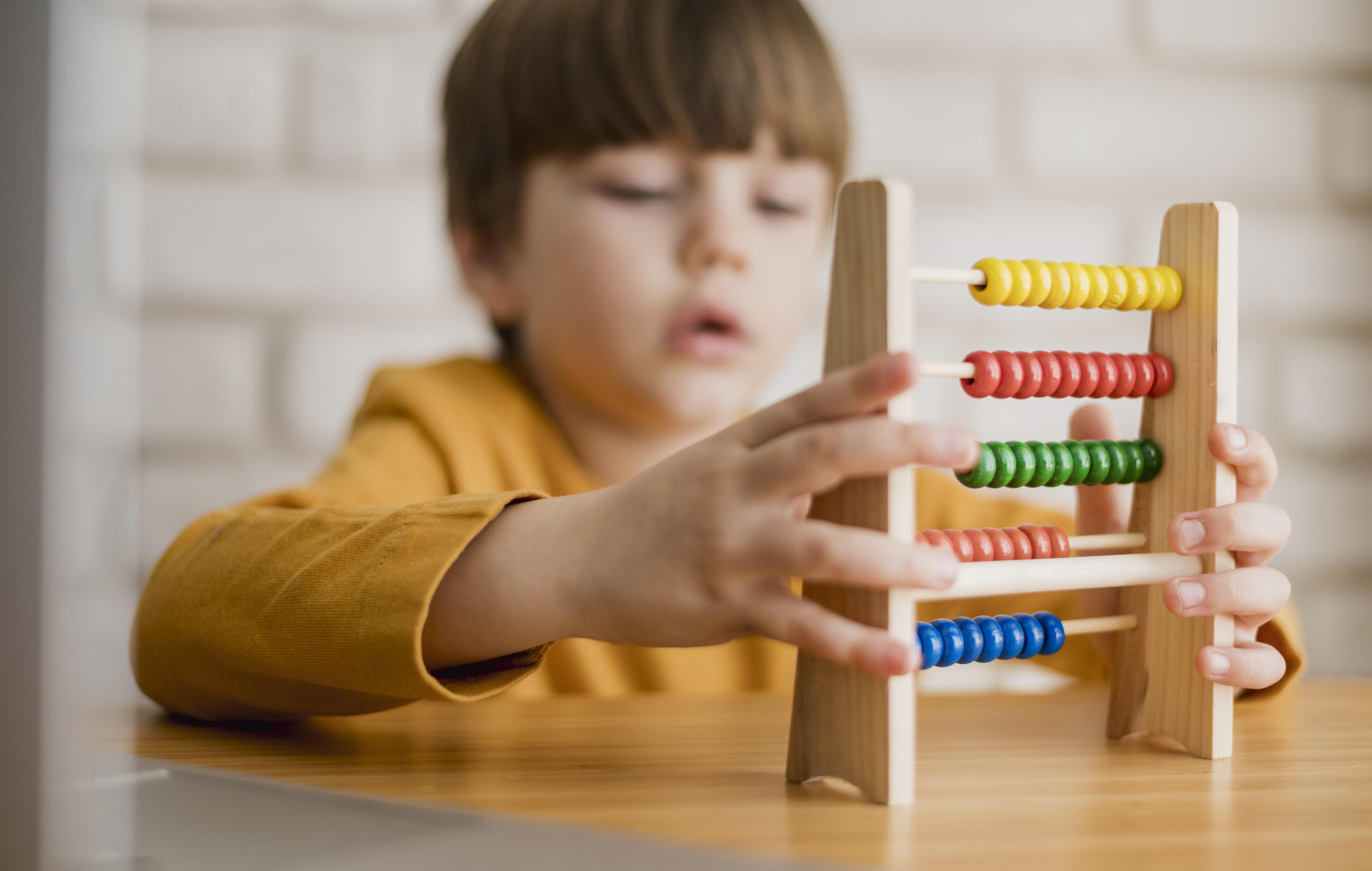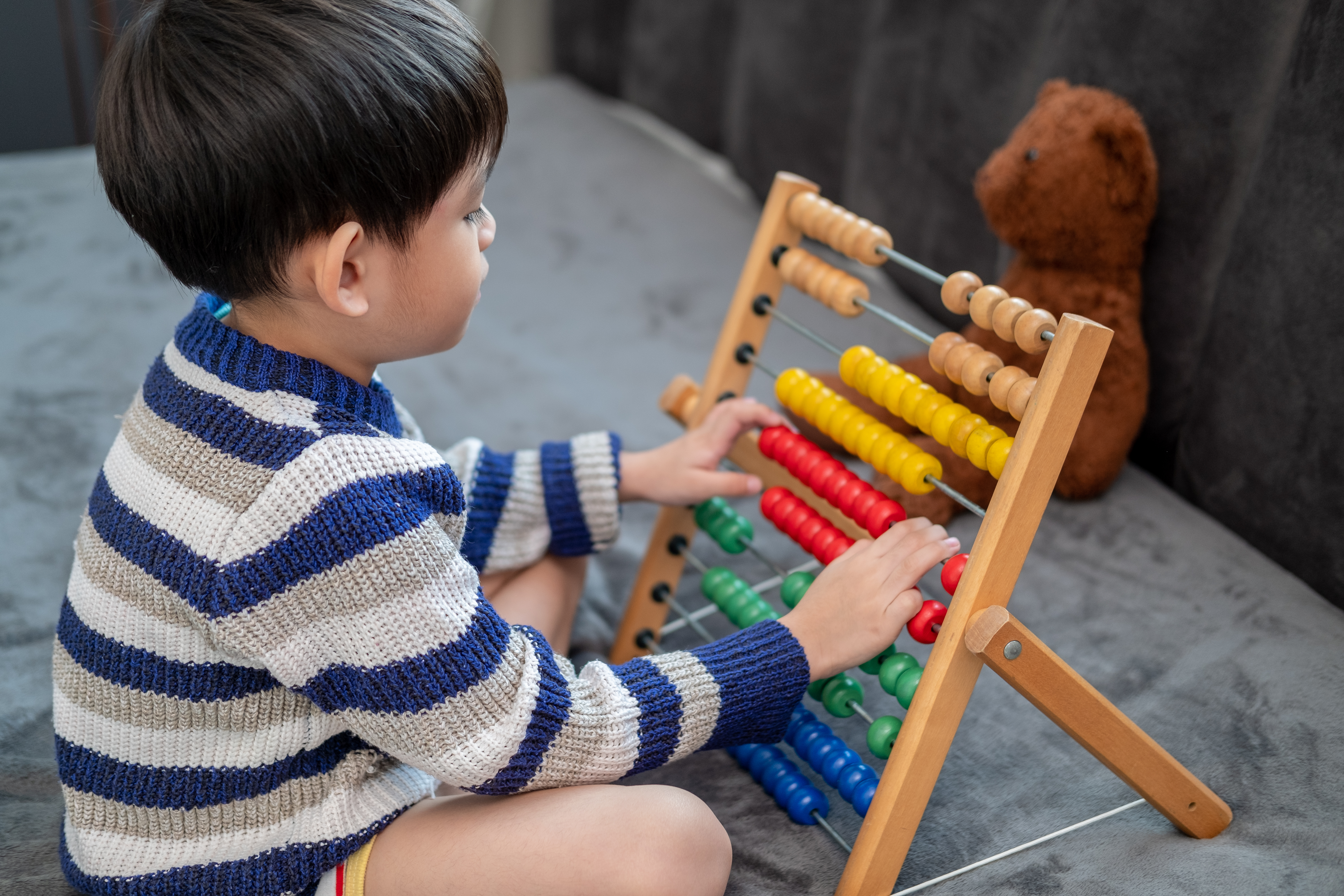Abacus learning enhances children’s mental math, concentration, memory, and confidence while making mathematics engaging and fun. Math can be tough for many kids. Long sums, tricky formulas, and exam stress often make them lose confidence. But what if math could be easier, faster, and even fun? That’s exactly what the abacus does. This old but powerful tool is helping children and even adults improve mental math, memory, and focus.
What is an Abacus?
An abacus is one of the oldest counting tools. It looks simple a wooden frame with rows of beads but it’s very powerful. By moving the beads, kids learn addition, subtraction, multiplication, and division. With practice, they can even picture the beads in their mind and calculate sums faster than a calculator. This is called mental abacus, and it trains the brain to think quickly and clearly.
Key Benefits of Abacus Learning

- Faster Calculations: Kids can solve big math problems quickly without paper or calculators.
- Better Concentration: Moving or visualizing beads improves focus and attention.
- Stronger Memory: Mental abacus helps remember numbers and sequences.
- Boosts Confidence: Solving problems quickly makes children proud and more willing to try new things.
- Creativity and Imagination: Using both sides of the brain develops logic and creativity.
- Reduces Math Fear: Fun and interactive learning makes math enjoyable instead of scary.
Why Abacus Matters Today
Today, kids rely heavily on calculators and gadgets, even for simple sums. This can stop them from thinking critically or solving problems on their own. The abacus strengthens the brain, like exercise strengthens the body. Practicing with the abacus improves mental math, memory, focus, and confidence. Over time, children can solve sums just by imagining the beads. Experts say learning abacus early gives kids skills in reasoning, logic, and problem-solving that help not only in school but in real life too.
Who Can Learn Abacus?

Abacus learning is suitable for people of almost all ages. Young children, between 4 and 14 years, are at the best age to start because their brains are very flexible and can easily learn new skills. Learning abacus at this age builds a strong foundation for mental math, memory, and focus. High school students can benefit too, especially when preparing for exams, as abacus helps them calculate faster and more accurately. Even adults can learn abacus to improve concentration, sharpen memory, and develop analytical thinking. It’s a skill that helps in studies, work, and everyday life.
Learning Abacus Online
Learning abacus online is very easy and convenient. Kids can practice at home without going to a coaching center. Online classes usually have live lessons, step-by-step guidance, and fun activities that make learning enjoyable. Children can go at their own speed, repeat lessons if they need, and gradually get better. Parents can also watch their child’s progress and help when needed. By practicing regularly, kids become faster at calculations, make fewer mistakes, focus better, and feel more confident all from the comfort of home.
Abacus vs Math Apps
Many kids use math apps on phones and tablets. Apps can be fun and engaging, but they often make children rely too much on screens for learning. Kids may get used to tapping buttons instead of thinking through problems, which can limit their mental growth over time. Abacus, on the other hand, builds strong visualization skills, sharpens brain power, and improves real calculation speed all without any gadgets. Children learn to picture the beads in their mind and solve problems mentally, which strengthens memory, focus, and concentration. While apps may give short-term practice, they don’t develop long-term retention or thinking skills as effectively. That’s why abacus is better it trains the brain naturally, encourages independent thinking, and reduces unnecessary screen time, giving children skills they can use for life.
Conclusion
Abacus learning is more than just math. It trains the brain to think faster, remember better, and focus more. Mental abacus helps children feel confident in school and daily life. Kids who practice regularly not only solve math problems quickly but also develop better problem solving skills and logical thinking. They learn to concentrate for longer periods and handle challenges with patience. In a world full of gadgets, abacus teaches kids to be independent thinkers. It reduces over-reliance on calculators and screens while strengthening memory and creativity. Whether through offline centers or online classes, learning abacus is one of the best gifts parents can give their child for a smarter, more confident, and successful future. Children carry these skills with them for life.